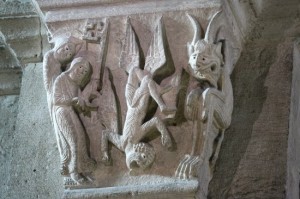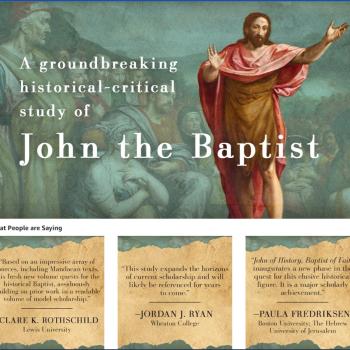Larry Hurtado posted recently about his talk on “fallacies and fashions” in New Testament studies. One fashionable fallacy he focused on is the notion of a pre-Christian Gnostic redeemer myth, as was posited by the History of Religion School in the 20th century. As Hurtado mentions, Carsten Colpe (in Die religionsgeschichtliche Schule: Darstellung und Kritik ihres Bildes vom gnostischen Erlosermythus) offered very important and powerful critiques of Richard Reitzenstein’s claims, which were widely accepted at that time.
But if there is an older fashionable view that has rightly been rejected, the question of whether there was pre-Christian Gnosticism is a broader one than the question of whether that particular depiction of a pre-Christian Gnostic redeemer myth was correct. While it is clear that some scholars in that period combined later texts into a system of thought that may never have existed as an ensemble (much less pre-dated the beginnings of Christianity), the question of whether there was any sort of pre-Christian Gnosticism remains an open one. What we know is that, by the second century, there were teachers who were connected with a form of religiosity that is directly related to that expressed in the later Nag Hammadi texts. That they were not all offshoots of Christianity is indicated both by the content of the later texts and the people to whom these views are attributed in the writings of Christian authors such as Justin Martyr.
 One such individual is Simon Magus, who is also mentioned in Acts, the date of which is disputed. This Simon is the only person in the entirety of Luke-Acts about whom we encounter claims that he is the incarnation of a pre-existent divine entity! Outside of the NT, Simon is associated with one Dositheos, who is supposed to have been a disciple in turn of John the Baptist, and both of the latter have associations with the Mandaeans. What the historicity of such information is is hard to determine.
One such individual is Simon Magus, who is also mentioned in Acts, the date of which is disputed. This Simon is the only person in the entirety of Luke-Acts about whom we encounter claims that he is the incarnation of a pre-existent divine entity! Outside of the NT, Simon is associated with one Dositheos, who is supposed to have been a disciple in turn of John the Baptist, and both of the latter have associations with the Mandaeans. What the historicity of such information is is hard to determine.
But the question of whether a text like the Gospel of John could be drawing on already-existing ideas (even if not in order to approve of such ideas but to say polemically “Jesus is better than what you offer”) is not settled by any means. Even if Gnosticism was not the source, the possibility that there was a pre-existing (pun intended) religious framework that inspired both Johannine Christology and Gnosticism is a view that some scholars find persuasive. And just recently, Crispin Fletcher-Louis uploaded an abstract of a book he is working on to Academia.edu, in which he will be making a case for that view. I feel honored to be mentioned in it alongside Adela Yarbro Collins and James D. G. Dunn, and look forward to reading it and interacting with it when it is published!
These questions are complex, and the evidence less than clear cut. And hence the ongoing vibrant discussion of these matters among scholars!












